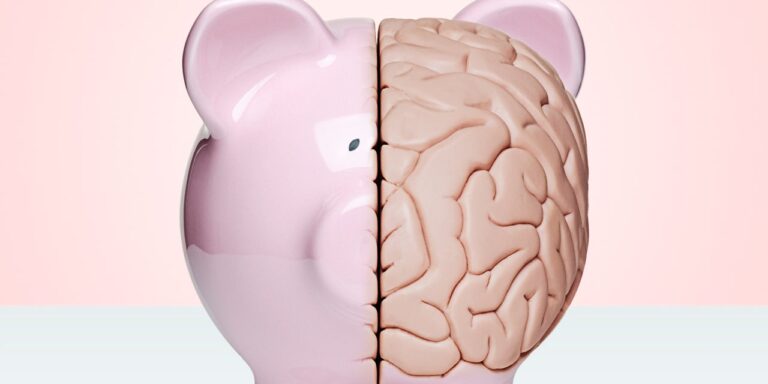But I don’t like the word negative. I would like to ask more specifically. It’s not just this general mass of negativity. What comes to your mind? Are you upset or anxious about having to deal with this part of your life? Are you sad? why?
Emotions do not disappear, but they may become smaller and diminish. The biggest thing is knowing how to deal with them.
Let me give you an example. I had a client who decided early on to become financially independent. She invested in real estate and made a lot of money. However, every time she went out to dinner with her friends, she felt a lot of guilt and anxiety. She learned to stop, check her emotions, and take a deeper look at why she was feeling this way. But by taking her time to stop and check in with her own feelings, she was able to understand and accept her own reactions. Understanding that has helped me better practice my reactions, making me less impulsive and making better decisions.
What does a healthy relationship with money look like?
It’s different for everyone. You need to define what a healthy relationship looks like to you. what stage of life are you in? What are your goals, what are your priorities, what are your values?
I can go back to those conventional money books and they’ll say they need you X I invested this much with the amount in the bank, emergency savings. That’s fine, but we are all in different places with different priorities and values.
You can ask the same question 6 months later, 1 year later, 2 years later. Things happen and you always have to adjust your definition. So I think it’s good to check in every year.
Do you think it takes many small steps to build a healthy relationship with money, or a radical change in our daily habits?
I always say that this work should be done in baby steps. Again, we were not taught this growing up, because we are learning it as adults. step by step. And we need to show ourselves compassion and forgiveness and be kind to ourselves.
What are some small steps we can all take wherever we are on our money journey?
First of all, I would like everyone to have a body check. Ask yourself what emotions arise in different financial situations, like standing in line at the grocery store or about to make a big purchase. They are neither bad nor wrong. What kind of memories are born from that? Start gathering information and data about your stories, patterns, and money beliefs. Understanding your emotional reactions and how you think about money is the first step in changing your habits.



